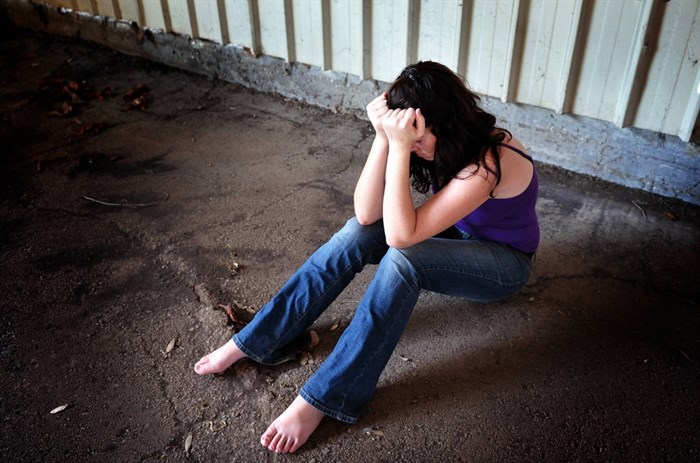
Image Credit: Shutterstock
May 29, 2020 - 6:30 PM
Some of those who are suffering the most from the COVID-19 pandemic have not been diagnosed with the disease.
Instead, women in abusive relationships and people “teetering on the brink” of isolation who are more likely to “self-medicate.”
Those were a couple of the most poignant messages to come out of a virtual town hall meeting with leaders of half a dozen of the Central Okanagan’s key non-profit agencies held yesterday, May 28.
“We know there are women and children who have been isolated in their homes with a perpetrator,” Michelle Novakowski, executive director of the Central Okanagan Elizabeth Fry Society, said. “We know that they are there and we haven’t been able to get to them and not all of them have been able to access us.”
Women have had their phones destroyed or cut off by their spouses and have no way to call 911, she said.
“In many of those homes, the perpetrator has lost their job or both parents have lost their jobs so that stress has just increased exponentially and we know, in times of stress, that the risk of violence and sexual violence increases.”
With more people returning to work and getting out and about, many of these victims will now have a chance to seek help.
“We know that, when things start to open up a bit more, we may have an onslaught of clients,” Novakowski said. “The women are going to leave and the shelters are going to have an onslaught. So, we’re preparing for that.”
For drug users, the pandemic has had a more direct impact.
“Record breaking job loss and loss of income can be matched by record breaking anxiety, even more so when a person is already teetering on the brink of medical and psychological disability,” Celine Thompson, executive director of The Bridge Youth and Family Services, said. “Stay at home orders have disrupted what’s most essential for human beings: connection. People can’t see their loved ones, can’t go to meetings or, in many cases, can’t get the face to face support that’s so important to them
“It creates, for all of us, an atmosphere of near constant stress, in addition to our baseline worries of marriage, relationships, rent, the bills. People have a tendency to self-medicate their pain and suffering. They always have. They always will. It’s not surprising to us that the alcohol sales and consumption records have absolutely skyrocketed since March.”
READ MORE: Illicit-drug deaths up in B.C. and remain highest in Canada: chief coroner
The Bridge has increased its harm reduction services for drug users but had to stop its in-house treatment of people with addictions. Instead, it’s using that space for people discharged from hospital from detoxification who have no fixed address.
At the same time, closing of international borders has made the supply of illegal drugs much riskier not only in terms of getting the drugs, but the drugs themselves have been adulterated and, therefore, are more dangerous.
Thompson pointed to the fact that there were 117 overdose deaths in B.C. in April, a 39 per cent increase over last year.
“That’s 117 deaths that are not reported in the daily briefing by Dr. Henry and Mr. Dix,” Thompson said. “Yet I would suggest that some of these, if not many of these, are in all likelihood COVID-related.”
READ MORE: Decriminalization of illicit drugs on Dr. Bonnie Henry's radar
Most of the agencies have been stressed financially because of COVID-19 but many have reserves and there’s been some significant increases in funding from governments and other agencies like the United Way and Central Okanagan Foundation. That means they are viable for the short term but worry about the future, given that spring and summer are the big fundraising seasons.
“This is not the time to be asking for funds,” Shelagh Turner, executive director of the Canadian Mental Health Association of Kelowna, said. “This is the time to be addressing people who are in a crisis.”
She estimated revenues will be down by $350,000 by the end of June.
To contact a reporter for this story, email Rob Munro or call 250-808-0143 or email the editor. You can also submit photos, videos or news tips to the newsroom and be entered to win a monthly prize draw.
We welcome your comments and opinions on our stories but play nice. We won't censor or delete comments unless they contain off-topic statements or links, unnecessary vulgarity, false facts, spam or obviously fake profiles. If you have any concerns about what you see in comments, email the editor in the link above.
News from © iNFOnews, 2020